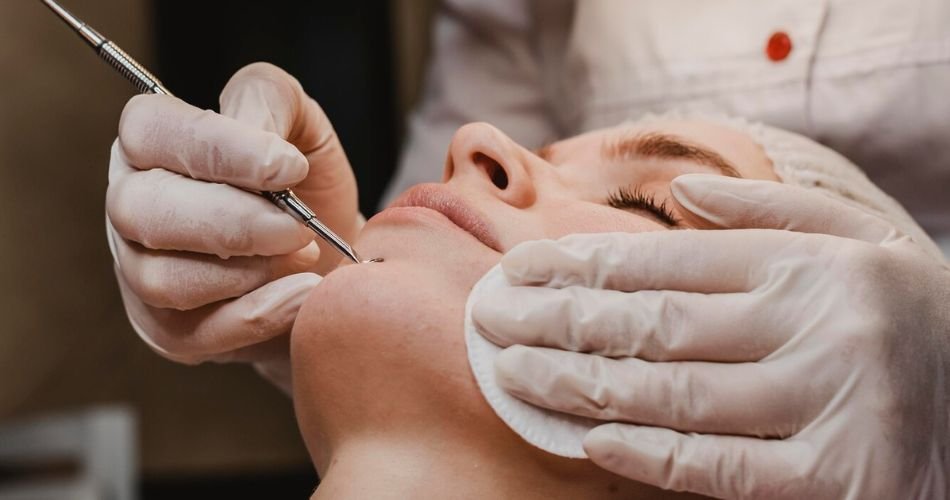If you’ve ever noticed the inner lining of your mouth shedding or peeling, you’re not alone. Skin peels in mouth is a surprisingly common issue that affects people of all ages. It can appear suddenly or gradually, and it may be painless or accompanied by discomfort, burning, or sensitivity. This condition can result from a variety of causes — some simple and harmless, while others may require medical attention. Understanding why skin peels in mouth occurs is essential for choosing the right treatment and preventing it in the future.
Daily Irritants and Their Role in Skin Peels in Mouth
One of the leading contributors to skin peels in mouth is the use of irritating oral hygiene products. Toothpaste and mouthwash often contain harsh chemicals like sodium lauryl sulfate (SLS), alcohol, or strong flavoring agents that can damage the delicate tissues inside your mouth. When used daily, these products may slowly break down the mucosal lining, leading to frequent episodes where skin peels in mouth becomes a regular problem. Switching to gentle, SLS-free products can significantly reduce the risk.
Dehydration: A Silent Culprit
Most people underestimate the impact of hydration on oral health. When the body is dehydrated, the mouth becomes dry, and the tissues lose elasticity and moisture. As a result, the surface layer of skin inside the mouth becomes fragile and more likely to peel. Skin peels in mouth often occurs more frequently during hot weather or after intense workouts if water intake isn’t increased. Making hydration a daily priority is a simple but effective way to prevent this issue.
Nutritional Deficiencies and Skin Peels in Mouth
Another overlooked cause of skin peels in mouth is nutritional deficiency, particularly low levels of vitamins B12, B2 (riboflavin), iron, and folic acid. These nutrients are vital for maintaining healthy mucosal tissue. When the body is lacking in these essential elements, the skin inside the mouth becomes weak and begins to shed. If you experience persistent skin peels in mouth along with fatigue, pale skin, or irritability, it’s worth getting your nutrient levels checked.
Fungal and Bacterial Infections
Infections in the mouth, particularly oral thrush (a fungal infection caused by Candida), can lead to visible skin peeling. Oral thrush usually appears as creamy white patches on the tongue or inner cheeks that, when wiped away, reveal raw and inflamed skin. This is a classic example of when skin peels in mouth due to an underlying infection. Such conditions may require antifungal or antibiotic treatment, depending on the type and severity of the infection.
Allergic Reactions to Food and Products
Allergies are another frequent cause of skin peels in mouth. You may be sensitive to specific foods, ingredients in your toothpaste or mouthwash, or even dental materials like latex gloves or fillings. These allergic reactions can trigger inflammation, redness, and eventually skin peeling. Keeping a symptom diary and noting when skin peels in mouth occurs in relation to certain foods or products can help identify potential allergens.
Stress and Immune System Imbalance
The link between emotional stress and physical symptoms is well-established. During periods of high stress, the immune system can become suppressed or overactive, leading to inflammatory responses in various parts of the body — including the mouth. Stress may worsen autoimmune conditions or cause flare-ups that lead to skin peels in mouth. Practicing stress management techniques like meditation, journaling, or yoga can help ease the severity and frequency of symptoms.
Autoimmune Disorders
Autoimmune conditions such as oral lichen planus, pemphigus vulgaris, or lupus can cause recurring or chronic cases where skin peels in mouth is a primary symptom. These conditions involve the immune system mistakenly attacking the body’s own tissues, resulting in sores, redness, and the shedding of oral mucosa. Diagnosis typically involves a biopsy and treatment may include corticosteroids or immune-suppressing medications.
Smoking and Tobacco Use
Smoking introduces toxins and heat into the mouth, which not only damages the gums and teeth but also leads to irritation of the mucosal lining. Long-term smokers often experience skin peels in mouth due to constant inflammation and dryness. Quitting smoking or reducing tobacco use can greatly improve oral health and stop further peeling from occurring.
Signs That You Should See a Doctor
While occasional, mild skin peels in mouth may not be a cause for concern, recurring or painful peeling should be examined by a healthcare provider. Warning signs include persistent soreness, bleeding, swelling, difficulty eating, and visible white or red patches that don’t heal. These symptoms may indicate infections, autoimmune diseases, or even early signs of oral cancer. Early intervention is key to managing any serious underlying cause effectively.
Effective Home Remedies for Skin Peels in Mouth
For minor cases of skin peels in mouth, several natural remedies can provide relief. A saltwater rinse is excellent for reducing inflammation and cleaning the mouth gently. Applying aloe vera gel can help soothe irritated tissues and promote healing. Honey has antibacterial and moisturizing properties that make it useful for treating dry or peeling skin. Coconut oil pulling is another popular remedy that can help cleanse the mouth and support healthy skin regeneration.
Dietary Changes That Can Help
What you eat plays a big role in oral health. When dealing with skin peels in mouth, it’s wise to avoid spicy, acidic, or overly hot foods that can further irritate the mouth lining. Instead, choose soft, bland foods like yogurt, oatmeal, bananas, and steamed vegetables. Including foods rich in vitamins B12, iron, and folic acid can also help restore the strength of your oral tissues and prevent future peeling episodes.
Over-the-Counter and Medical Treatments
If the issue persists or worsens, over-the-counter solutions such as mouth gels, anti-inflammatory rinses, or topical corticosteroids may be recommended. For fungal or bacterial infections that cause skin peels in mouth, prescription medications may be required. Always consult with a healthcare professional before starting any new treatment to ensure it’s appropriate for your specific condition.
Preventive Tips for Avoiding Skin Peels in Mouth
Preventing skin peels in mouth involves identifying triggers and making small lifestyle adjustments. Switch to gentle, non-irritating oral care products. Stay hydrated throughout the day. Maintain a balanced diet rich in essential nutrients. Avoid smoking and limit consumption of alcohol and caffeine. Be mindful of how stress affects your health, and take steps to manage it through regular relaxation practices.
Maintaining Long-Term Oral Health
Consistency is key when it comes to managing and preventing skin peels in mouth. Regular dental checkups, a mindful oral care routine, and a healthy diet all contribute to resilient mucosal tissue. Pay attention to any new symptoms, and don’t hesitate to seek medical advice if the condition returns or worsens. With the right care and attention, it’s possible to eliminate skin peels in mouth and maintain a comfortable, healthy smile.
Conclusion
Skin peels in mouth is a condition that, while often minor, should not be ignored — especially if it recurs or causes discomfort. From everyday irritants to serious autoimmune disorders, the causes vary widely, but so do the solutions. By staying aware of your habits, environment, and overall health, you can take proactive steps to prevent skin peels in mouth and ensure lasting oral wellness. Whether through simple lifestyle changes or medical treatment, healing and comfort are within reach.




